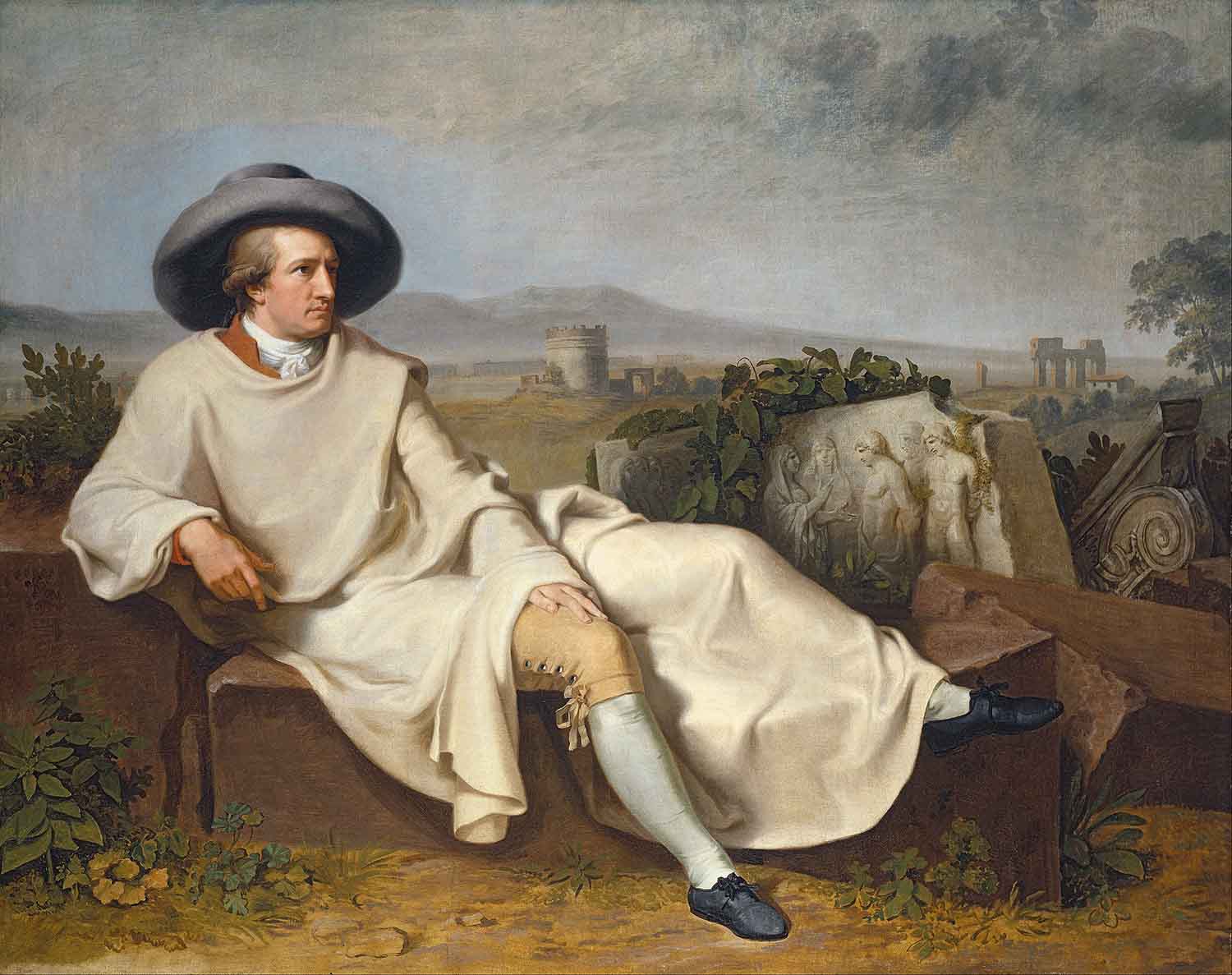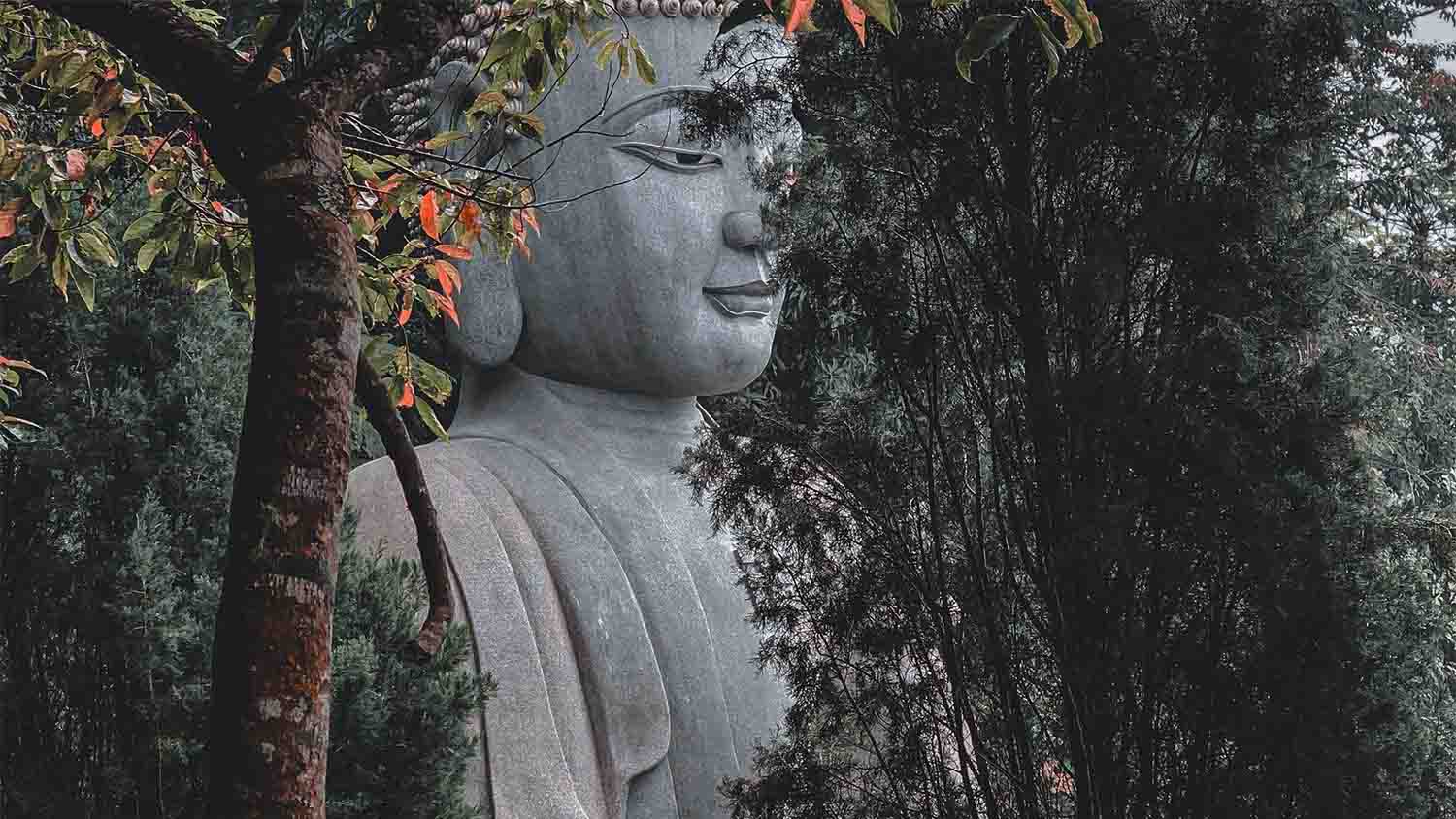Goethe in the Roman Campagna By Johann Heinrich Wilhelm Tischbein
The world we knew is disintegrating and a new one is taking shape.
A large part of my yearlong reflection has been about how to bring the Beauty, Truth, and Goodness of Buddha Nature into our current milieu.
Buddha Nature can be thought of as a source of human kindness and sensitivity. For example, the part of Turgenev’s mind that inspired him to write in his 1862 novel
Here, in the midst of the shade and the coolness, she read or studied or gave herself over to the sensation of perfect peace that’s probably familiar to each of us, the charm of which consists in the barely conscious, silent recognition of life’s vast current constantly flowing both around and inside us.
The impulse to resume these letters comes to me in part from a man named J.P. Eckermann who, almost two-hundred years ago, wrote in his journal about the time he spent with the poet Johann Wolfgang von Goethe.
I’m excited by an excerpt from Eckermann’s September 18th, 1832, journal, recently sent to me in The Paris Review’s e-mail newsletter.
In the excerpt—by Eckermann’s account—Goethe instructs that “the poet attends to the present each day, and writes with freshness and spontaneity about whatever comes his way,” and also that, “a particular instance becomes universal and poetic by virtue of the fact that the poet writes about it.”
For Goethe, poetry—and the poet’s viewpoint—brings order, meaning, and purpose to life.
Typically, words smolder inside people like smoke from wet wood. But poets and teachers like the great Chinese Buddhist sage, Daijan Huening (b. 638—d. 713)
who says, “Our essence of mind is intrinsically pure”, chop and dry their internal timber so that it burns clean and crackles in their hearths.
“Don’t let anyone tell you that real life is lacking in poetic interest,” says Goethe. And he continues:
This is exactly what the poet is for: he has the mind and the imagination to find something of interest in everyday things. Real life supplies the motifs, the points that need to be said—the actual heart of the matter; but it is the poet’s job to fashion it all into a beautiful, animated whole.
The human mind is restless to fashion Goethe’s beautiful whole and to find ‘the actual heart of the matter’—the matter of substance, of God, and of spirit, if you will—in everyday things.
Life is the soft morning sun that crawls low across the winter sky. It’s the late June trees heavy with dark-green leaves. Life fills ‘the present each day.’
In his 1936 book, The Summing Up, Sommerset Maugham writes that “The great tragedy of life is not that men perish, but that they cease to love.” (Sec. 77 p. 200).
A heroic person lives with devotion to the universal significance of passing phenomena. The Buddha, the poet, and the teacher in you evokes with words the inspiration—the love—that shows us how to see beyond death and beyond the forms that pass before us as if in dreams into the timeless substance and wonder of life.
Today I walk to work. It’s a clear, warm November day with soft white light. Fallen, golden maple leaves cover the sidewalk next to Washington Square Park. I’m listening to U2 with earbuds as I walk. The music reminds me of a more innocent time. I recall the deep, clear, desert night sky above the San Gabriel Mountains where I lived in a monastery at the Mojave Desert’s edge. The turning maples above Washington Square Park remind me of the effort to kindly and gently warm and inspire the changing world.
Whatever the new world brings, Buddhism’s ancient teacher, Gayasas (b. ? — d. 13 B.C.), tells us it’s “altogether quietude.” My wish is for each of us to find and to share the quietude of love that gives expression to poetry and to art and that deepens and enriches our relationships with other beings.
And I hope that with these letters the reader will be inspired to do, to hope, and to wish as I do—that life does not perish for our ceasing to love.






